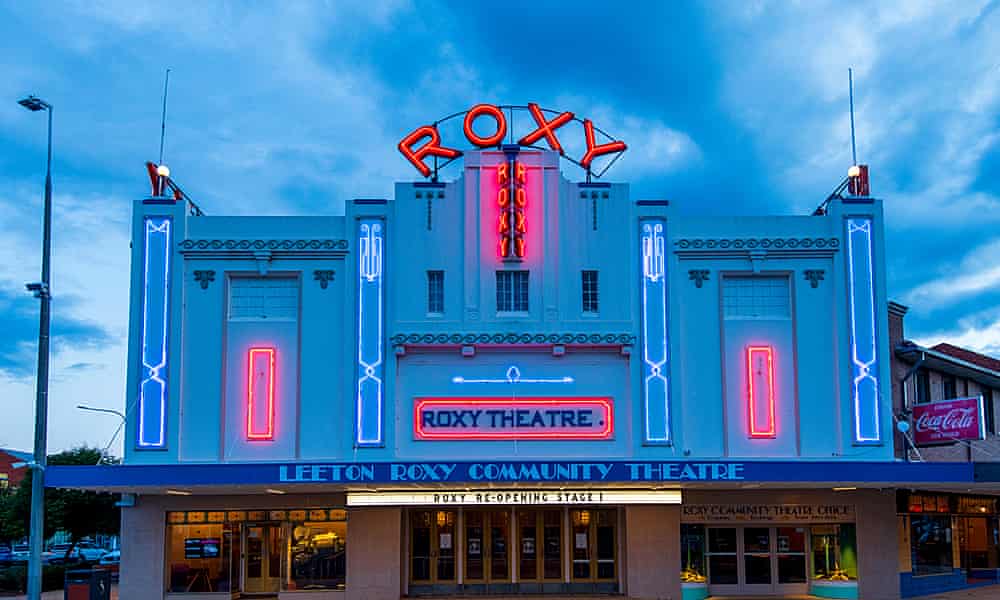|
Power independent journalism
|
|
|


| |
|
|
|
Dear reader, you can now get breaking news alerts sent directly to your inbox. Sign up here.
Newsletters may contain info about charities, online ads, and content funded by outside parties.
|
|
|
|
| |
|
 |
Dear Rural Networkers,
My social media feeds have been filled in the past two weeks with Australians declaring that they will never eat American beef, after the Australian government lifted the ban on US imports.
Let's recap. Back in April, on "liberation day", the US president Donald Trump singled out Australia's ban on US beef for particular condemnation in that wide-ranging speech where he introduced tariffs on the whole world. But Australia stood firm: there was a long-running scientific process, already in place, to investigate the risks of cattle processed in the US but born in Canada or Mexico; and there was pressure from Australian producers to require US cattle be subject to the same end-to-end traceability requirements as they are in Australia.
Then, last month, the Albanese government confirmed – coincidentally while it was lobbying the White House for relief from new tariffs on pharmaceuticals and steel and aluminium – that it would allow imports into Australia of meat processed in the US but originating in Mexico and Canada. The agriculture minister, Julie Collins, said the decision was unrelated to the US's escalating trade war but the Trump administration has swiftly claimed credit.
A resolution of this issue was not wholly unexpected – the Beef review is now 8 years old and the ban on US imports was technically lifted in 2019, subject to those tricky cross-border traceability requirements – but the timing was sufficient to raise eyebrows and prompt Cattle Australia to request an independent review of the department's, er, review. Nationals leader David Littleproud said he was "suspicious" of the timing and he too wanted an independent review.
For Australian consumers this is unlikely to have a direct effect: 99% of the beef consumed in Australia is Australian-grown, with some small exceptions for specialty products. But, as all the industry bodies have been warning: it would just take one bad steak to slip by to risk Australia's BSE-free status.
In other news, some in agriculture are increasingly questioning whether the big peak bodies are the best way to represent and advocate for their interests. As Katharine Wilson reports:
"Some farmers believe peak bodies advocate for agribusiness interests over those of grassroots farmers. In niche and nascent sectors especially, farmers say they don’t feel represented."
You can read Kath's full story here.
In Victoria, a group of farmers are protesting against legislation that they fear will allow the government to build transmission lines on their properties without their consent. As Victorian state correspondent Benita Kolovos explains, bill will hand responsibility for planning the state's transmission network from the Australian Energy Market Operator (Aemo) to state agency VicGrid – and gives VicGrid and their contractors power to access private land without their consent when required to construct energy infrastructure. Benita writes:
"The bill states authorised officers can 'use reasonable force to gain entry' to private land 'if it is reasonably necessary to do so'. It also prohibits landowners 'obstructing, hindering, or delaying the entry of the authorised officer'."
Affected landowners will receive $8,000 per km of infrastructure on their land per year; those who resist face fines of up to $12,000 for individuals and $48,000 for corporations. Victorian premier Jacinta Allan has compared it to the same powers governments use to forcibly access and acquire land for things like building new roads or rail lines. NSW also has powers to compulsorily acquire lands for transmission lines, but those powers only kick in after six months of attempted negotiations.
To Tasmania now, where a racehorse trainer has been fined $2,000 after being found guilty of animal cruelty for whipping a racehorse named The Bolt more than 40 times in four minutes. New Rural Network contributor Martin Agatyn was in the Devonport magistrates court on Wednesday for the sentencing hearing, in which magistrate Evan Hughes said the "unwanted media attention" on the case had also served as a form of punishment.
And finally, Kati Thanda-Lake Eyre is in flood again. Photographer Jay Collier flew over the area and captured these stunning photographs – including the image at the top of this newsletter. Kati Thanda-Lake Eyre is Australia's largest salt lake at 9,000 sq km or 1% of the country's landmass, and is also the lowest point on the continent, at 15.2m below sea level.
Until next time,
Rural and regional editor
Calla Wahlquist |
| Across the (regional entertainment) landscape |
|
 |
The New South Wales government is spending $700,000 on funding 10 travelling productions which are touring 36 regional venues in the next 12 months – with as many as 76,000 locals expected to turn out to see them.
One of the theatres set to host these productions is the Roxy theatre in Leeton, which has had a $6m revamp and is due to fully reopen soon. We wrote about the plight of the Roxy and other regional art deco theatres back in 2023.
Arts reporter Kelly Burke says productions will include the Queanbeyan Performing Arts Centre’s production of Joanna Murray Smith’s Bombshells; Belvoir St theatre’s Lose to Win; and a First Nations production The Secrets of the Dawn, a truth-telling exhibition that will be staged in communities directly affected by Stolen Generation policies.
NSW arts minister John Graham said:
“It’s important that regional and remote communities have opportunities to enjoy cultural experiences.
“For audiences, impact of regional touring is immeasurable. The opportunity to see acclaimed productions and cultural programs, the chance to hear new stories – or stories that reflect your own lived experience can captivate imaginations, and inspire communities.”
You can read Kelly's full piece here.
|
Guardian Australia picture editor Carly Earl has won the top award in the 2025 Australian Life photography competition for a portrait of 19-year-old Riley Swanson, taken as part of a reporting trip she took with Mandy McKeesick last year covering the life of drovers near Roma in outback Queensland.
In her submission for the prize, Carly wrote:
“Young drovers in rural Australia spend months on horseback moving cattle, far from modern distractions. Sleeping in trailers and riding 12-hour days, they face isolation, injury risks and financial loss. Many quit early, but a few, like Riley Swanson, endure the harsh, romanticised life on remote, decades-old stock routes.”
You can see a gallery of all the finalists for the award here and revisit Mandy's story – and see more of Carly's photography from that trip – here. |
| Enjoying this newsletter? |
|
| |
|
… there is a very good reason why not to support the Guardian
|
|
Not everyone can afford to pay for news. That is why our website is open to everyone.
But – if you can afford to do so – here are three good reasons why you might consider becoming a Guardian supporter today:
|
|
1
|
|
Your funding means we can be completely independent
|
|
|
2
|
|
High-quality, trustworthy journalism is a public good
|
|
|
3
|
|
You can support us however you like
|
|
|
Help power the Guardian’s journalism at a time when misinformation is rife online and good news can be hard to find.
It could be a one-off payment or a regular monthly amount of your choice. Thank you.
|
|
|
|
|
|
| |
|

| | |